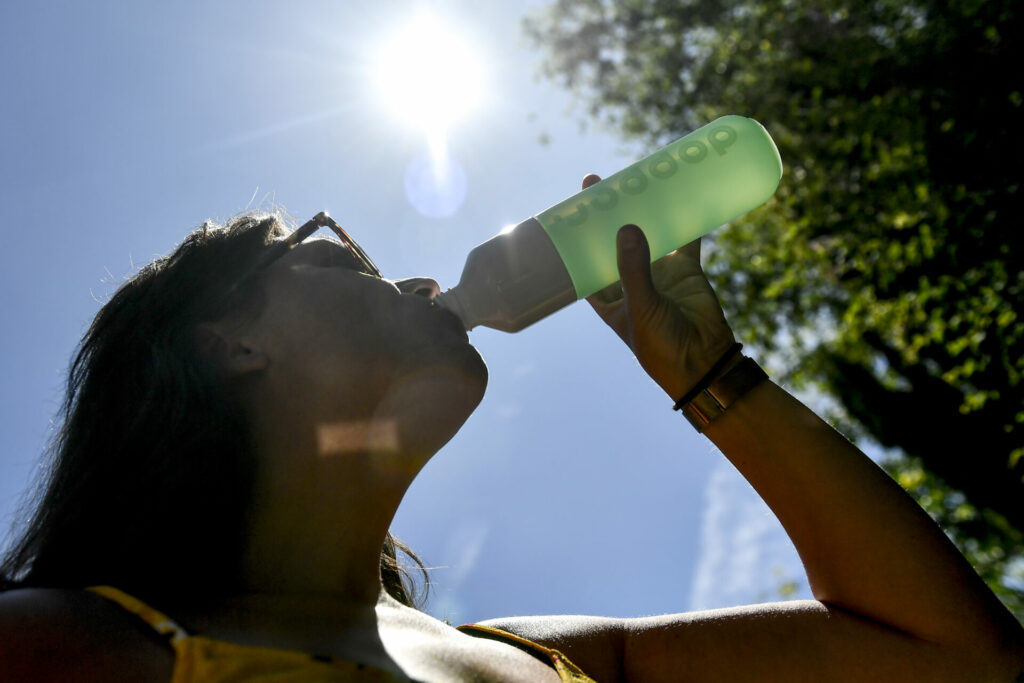Despite this year's dry spring and summer, there is no acute danger for the drinking water supply, however, people in Flanders have been advised to use water wisely.
From Wednesday, there is a ban on water abstraction for farmers, as was the case in the summer of 2020, when the taps of homes in several Flemish communes near Brussels went dry. Although the ban was put in place at later point this year, Belgium experienced the second-driest spring ever, sparking fears that groundwater levels will be critically low.
However, the Flemish water companies confirmed on Wednesday that they will continue to supply sufficient drinking water, largely as a result of the efforts made by them in recent years to bridge long periods of drought.
"The latest forecasts guarantee that the supply of drinking water will remain guaranteed this summer in the event of persistent drought," a statement from AquaFlanders, the Federation of Flemish water companies, read.
Sustainable solutions
Water companies across the region are continually working to provide high quality drinking water everywhere in Flanders, Carl Heyrman, General Manager at AquaFlanders, said.
"They are doing this by focusing on sustainable production, distribution and storage techniques in which they monitor the balance between supply and demand," he explained.
Related News
- This summer will be hotter than average as 'seasons are disturbed by global warming'
- Flanders groundwater levels dangerously low
- Low levels in Meuse river threatens Flanders drinking supply
There are several ways in which this is being done, from brackish water at the coast being purified into drinking water to increasing infrastructure investments to ensure a better connection between the distribution networks of different water companies.
The government itself is also taking steps to ensure water security via the Blue Deal, the region's plan to combat drought and water scarcity through several measures and investments in infrastructure, which involves some 70 projects.
Changing mentalities
Aside from the additional measures implemented and investments made, the increasing water awareness of people living in Flanders is also making a difference, Heyrman explained.
"From the Great Water Survey that AquaFlanders organised together with Vlakwa and Ghent University, it recently appeared that more and more people consider water a valuable commodity," said Heyrman. "They find it important to use water wisely and that is an important evolution."
The government has also shared various ways in which people can save water at home, from ensuring your dishwasher or washing machine is always full before letting it run, to taking showers instead of baths and watering plants early in the morning and late in the evening to prevent the water from evaporating quickly.

